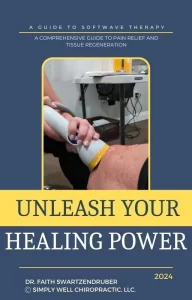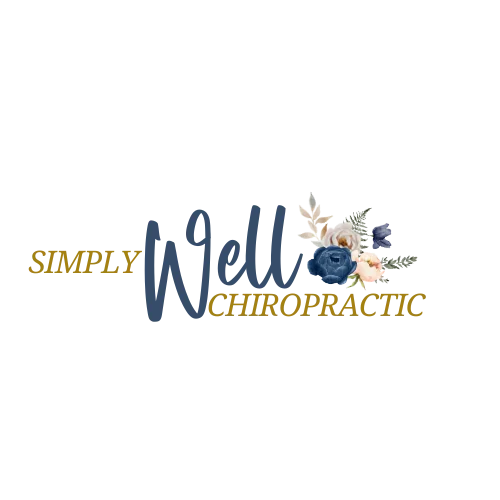Are you tired of the constant pain, numbness, and tingling in your hand and arm caused by Carpal Tunnel Syndrome (CTS)? Do you find it difficult to perform everyday tasks, impacting your quality of life? If you’re one of the many individuals struggling with Carpal Tunnel Syndrome, you know how frustrating and debilitating this condition can be. The good news is that there is a promising solution that can help you find Carpal Tunnel Syndrome relief in Cincinnati — SoftWave Therapy.
SoftWave Therapy offers a non-invasive, drug-free approach to treating Carpal Tunnel Syndrome by harnessing the body’s natural healing processes. By promoting blood circulation and tissue regeneration, SoftWave Therapy offers a potential solution for those seeking relief from the symptoms of Carpal Tunnel Syndrome without the risks and drawbacks associated with traditional treatments.
Understanding Carpal Tunnel Syndrome: Causes & Symptoms
Carpal Tunnel Syndrome is a pervasive medical condition that significantly impacts the quality of life for many individuals. Excessive pressure on the median nerve at the wrist manifests as pain, numbness, or a tingling sensation in the hand and arm. This nerve compression can range from slight unease to debilitating pain, affecting daily activities and overall well-being.
Causes of Carpal Tunnel Syndrome
Understanding the causes and symptoms of Carpal Tunnel Syndrome is the first step in seeking effective treatment options.
Several factors can contribute to the development of Carpal Tunnel Syndrome, including:
- Repetitive Hand Movements: Continuous use of the hands, particularly in activities that involve repetitive wrist motions, can increase pressure on the median nerve. This is common in professions or hobbies that require extensive typing, sewing, or assembly line work.
- Genetic Predisposition: Some individuals may be genetically predisposed to Carpal Tunnel Syndrome due to inherited anatomical characteristics that cause a smaller carpal tunnel, making it easier for the median nerve to become compressed.
- Health Conditions: Certain health conditions, such as diabetes and rheumatoid arthritis, can increase the likelihood of developing Carpal Tunnel Syndrome. These conditions can cause inflammation or changes in the body’s tissues, contributing to median nerve compression.
- Pregnancy and Fluid Retention: Hormonal changes and fluid retention during pregnancy can increase pressure within the carpal tunnel, temporarily raising the risk of Carpal Tunnel Syndrome.
Symptoms of Carpal Tunnel Syndrome
Carpal Tunnel Syndrome symptoms often start gradually and can worsen over time if left untreated. Common symptoms include:
- Numbness and Tingling: These sensations often occur in the thumb, index, middle, and ring fingers. The feeling can be described as a “pins and needles” sensation and may extend up the arm.
- Weakness and Diminished Grip Strength: Individuals with Carpal Tunnel Syndrome may find it difficult to grip objects firmly, often dropping them unintentionally. This weakness is due to the impaired function of the muscles controlled by the median nerve.
- Pain: Some people experience pain in the forearm, wrist, and hand, which can sometimes extend to the shoulder. This pain may worsen at night or with activities that involve bending the wrist.
Traditional Treatment Options for Carpal Tunnel Syndrome
Carpal Tunnel Syndrome is commonly treated through various conventional methods aimed at alleviating symptoms and improving hand function. Here are some of the standard treatments:
Wrist Splints
Wrist splints are often the first line of treatment for Carpal Tunnel Syndrome. These devices keep the wrist in a neutral position, reducing pressure on the median nerve, particularly at night.
- Limitations: While wrist splints can provide temporary symptom relief, they do not address the underlying causes of Carpal Tunnel Syndrome. Additionally, they can be cumbersome and uncomfortable to wear, especially during daily activities.
NSAIDs (Nonsteroidal Anti-Inflammatory Drugs)
NSAIDs, such as ibuprofen, are used to reduce inflammation and alleviate pain associated with Carpal Tunnel Syndrome.
- Limitations: Although NSAIDs can offer temporary relief, they do not address the root cause of nerve compression. Long-term use of these medications can also lead to side effects, including gastrointestinal issues and increased risk of cardiovascular problems.
Corticosteroid Injections
Corticosteroid injections are administered directly into the carpal tunnel to reduce inflammation and swelling, thereby decreasing pressure on the median nerve.
- Limitations: While corticosteroid injections can provide significant short-term relief, their effects are usually temporary. Repeated use can lead to side effects such as weakening of the tendons and muscles, and they do not offer a permanent solution to Carpal Tunnel Syndrome.
Carpal Tunnel Release Surgery
For severe cases of Carpal Tunnel Syndrome, carpal tunnel release surgery is often recommended. This surgical procedure involves cutting the ligament that forms the roof of the carpal tunnel, which reduces pressure on the median nerve.
- Limitations: While effective for many, surgery comes with inherent risks such as infection, nerve damage, and scarring. The recovery period can be lengthy, requiring physical therapy and time off work. Additionally, surgery addresses the symptom of nerve compression but does not eliminate the potential for recurrence if underlying conditions or repetitive activities continue.
Introducing SoftWave Therapy for Carpal Tunnel Syndrome
SoftWave Therapy is an innovative treatment that offers a promising solution for individuals suffering from Carpal Tunnel Syndrome. This therapy utilizes unfocused, low-intensity shock waves to stimulate the body’s natural healing processes, providing relief from symptoms and promoting overall nerve health.
How SoftWave Therapy Works
- Use of Unfocused, Low-Intensity Shock Waves: SoftWave Therapy employs a hand-held device to deliver shock waves to the affected area. These shock waves create a pressure wave that penetrates tissues, stimulating cellular activity without causing significant damage.
- Stimulation of the Body’s Natural Healing Processes: The shock waves trigger a biological response in the body, promoting the release of growth factors and other substances that aid in healing.
- Promotion of Blood Circulation and Tissue Regeneration: The therapy enhances blood flow to the wrist and hand, increasing the delivery of oxygen and nutrients necessary for tissue repair. This helps reduce inflammation and regenerate damaged tissues, leading to improved nerve function.
Comparison with Traditional Treatments
SoftWave Therapy offers several advantages over conventional treatments for Carpal Tunnel Syndrome:
- Non-Invasive Nature: Unlike surgical interventions, SoftWave Therapy is non-invasive, meaning it does not require any incisions or anesthesia. This significantly reduces the risk of complications and eliminates the need for a lengthy recovery period.
- Lack of Medication and Associated Side Effects: Traditional treatments often involve the use of medications, such as NSAIDs and corticosteroids, which can have undesirable side effects with long-term use. SoftWave Therapy does not rely on drugs, making it a safer alternative for managing Carpal Tunnel Syndrome symptoms.
- Focus on Healing the Root Cause of Carpal Tunnel Syndrome: While conventional treatments typically focus on symptom management, SoftWave Therapy addresses the underlying cause of Carpal Tunnel Syndrome by promoting tissue regeneration and improving blood circulation. This holistic approach can lead to more sustainable relief and better overall outcomes.
SoftWave Therapy stands out as a revolutionary treatment option for Carpal Tunnel Syndrome, offering an effective, non-invasive, and drug-free solution that targets the root cause of the condition. By harnessing the body’s natural healing abilities, SoftWave Therapy can provide lasting relief for those suffering from Carpal Tunnel Syndrome, making it a compelling alternative to traditional treatments.
How SoftWave Therapy Works to Alleviate Carpal Tunnel Symptoms
SoftWave Therapy, also known as Extracorporeal Shock Wave Therapy (ESWT), is an advanced treatment that can effectively alleviate the symptoms of Carpal Tunnel Syndrome through several key mechanisms.
Mechanisms of SoftWave Therapy
- Stimulation of Cell Metabolism: The shock waves delivered by SoftWave Therapy stimulate cellular activity in the affected area. This activation enhances the body’s natural repair processes, promoting the regeneration of damaged cells and tissues.
- Increased Blood Flow to the Affected Area: The therapy improves blood circulation within the wrist and hand. Enhanced blood flow delivers more oxygen and essential nutrients to the tissues, which are crucial for healing and recovery.
- Reduction of Inflammation: SoftWave Therapy targets inflamed tissues, helping to reduce swelling and pressure on the median nerve. This reduction in inflammation is vital for alleviating the symptoms of Carpal Tunnel Syndrome.
- Promotion of Nerve Function and Tissue Regeneration: By stimulating the body’s natural healing mechanisms, SoftWave Therapy aids in the regeneration of damaged nerves and tissues. This leads to improved nerve function and a reduction in Carpal Tunnel Syndrome symptoms.
Benefits of Using SoftWave Therapy for Carpal Tunnel Relief
SoftWave Therapy offers a range of benefits for individuals seeking relief from Carpal Tunnel Syndrome. This innovative treatment provides an effective and safe alternative to traditional methods, with several key advantages:
Non-Invasive and Drug-Free
- Non-Invasive: SoftWave Therapy is a non-invasive procedure, meaning it does not require incisions, anesthesia, or any surgical intervention. This significantly reduces the risk of complications and makes the treatment more comfortable for patients.
- Drug-Free: Unlike treatments that rely on medications such as NSAIDs or corticosteroids, SoftWave Therapy does not involve any drugs. This eliminates the potential side effects and long-term risks associated with medication use.
Minimal to No Recovery Time
- Quick Recovery: Since SoftWave Therapy is non-invasive, there is minimal to no recovery time required. Patients can typically resume their normal activities immediately after treatment, making it a convenient option for those with busy schedules.
- No Downtime: The lack of recovery time means that patients do not need to take time off work or limit their daily activities, allowing for seamless integration of the treatment into their routine.
Effective Pain Relief and Symptom Management
- Pain Relief: SoftWave Therapy provides significant relief from the pain associated with Carpal Tunnel Syndrome. By reducing inflammation and promoting tissue regeneration, patients often experience a marked decrease in discomfort.
- Symptom Management: In addition to pain relief, SoftWave Therapy helps manage other Carpal Tunnel Syndrome symptoms such as numbness, tingling, and weakness. This comprehensive symptom management improves overall hand function and quality of life.
Enhancement of the Body’s Natural Healing Processes
- Natural Healing: SoftWave Therapy enhances the body’s natural healing processes by stimulating cellular activity and increasing blood flow to the affected area. This promotes the regeneration of damaged tissues and nerves, leading to more effective and sustainable recovery.
- Long-Term Benefits: By supporting the body’s innate ability to heal itself, SoftWave Therapy offers long-term benefits that go beyond temporary symptom relief. Patients can experience sustained improvements in nerve function and overall hand health.
Sustainable Relief Without the Risks of Surgery
- Avoidance of Surgery: For many patients, SoftWave Therapy provides a viable alternative to surgical interventions. This means avoiding the risks, complications, and extended recovery time associated with surgery.
- Long-Term Relief: By addressing the root causes of Carpal Tunnel Syndrome and promoting natural healing, SoftWave Therapy offers sustainable relief from symptoms. Patients can enjoy lasting improvements without the need for ongoing invasive treatments or medication.
Start Healing with SoftWave Therapy Today
If you are struggling with the symptoms of Carpal Tunnel Syndrome, it’s time to consider SoftWave Therapy. Don’t let Carpal Tunnel Syndrome continue to impact your life. SoftWave Therapy offers a promising, non-invasive, and drug-free solution to help you find lasting relief. At Simply Well Chiropractic in Cincinnati, Dr. Faith offers a $49 Introductory Special that includes a consultation, first treatment and a treatment plan. Simply schedule your first appointment below or call (513) 271-1233.







